On October 10…
“History cannot give us a program for the future, but it can give us a fuller understanding of ourselves, and of our common humanity, so that we can better face the future.”
~Robert Penn Warren

1845 – The United States Naval Academy opened in Annapolis, Maryland, with 50 midshipmen students and seven professors. Known as the Naval School until 1850, the curriculum included mathematics, navigation, gunnery and steam, chemistry, English, natural philosophy, and French.
The Naval School officially became the U.S. Naval Academy in 1850, and a new curriculum went into effect, requiring midshipmen to study at the academy for four years and to train aboard ships each summer – the basic format that remains at the academy to this day.
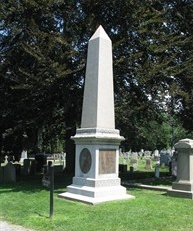
1877 – The U.S. Army held a West Point funeral with full military honors for Lieutenant-Colonel George Armstrong Custer. Killed the previous year in Montana by Sioux and Cheyenne Indians at the Battle of the Little Big Horn, Custer’s body had been returned to the East for burial on the grounds of the U.S. Military Academy at West Point, NY, where Custer had graduated in 1861.
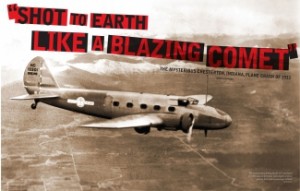
1933 – A Boeing 247 propliner operated by United Air Lines, crashed near Chesterton, Indiana in the first proven act of air sabotage in the history of commercial aviation. The burning wreckage of the plane fell from the sky into a farmer’s field and nearby woods. All seven passengers and crew aboard the plane died. Witnesses on the ground reported seeing the aircraft explode and burst into flames before it came down.
Forensic analysis of the wreckage showed that the Boeing 247 – it cruised at 150 miles an hour, easily faster at the time than any other passenger plane, and even faster than the best American fighter plane of the day – was destroyed by a nitroglycerin bomb planted somewhere aboard, probably in the lavatory.
Although the FBI conducted an exhaustive investigation, no suspect was ever identified or charged in the incident, and 83 years later, it remains unsolved.
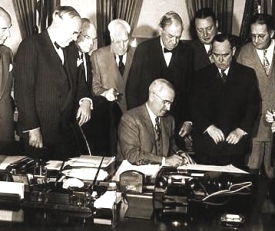
1951 – President Harry S. Truman signed the Mutual Security Act, a measure intended to signal Washington’s resolve to allies and to the Soviet Union that the United States was capable of and committed to containing communism globally. The signing of the act came after the Soviet Union exploded their second nuclear weapon in a test one week earlier.

1957 – The Milwaukee Braves defeated the New York Yankees to win their first World Series since 1914, when they were the Boston Braves. Lew Burdette, the series MVP, pitched the seventh and deciding game on just two days of rest, and tossed a shutout.
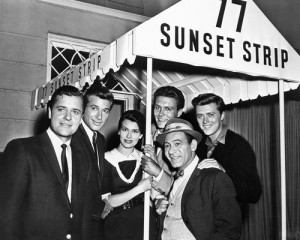
1958 – 77 Sunset Strip, a private eye series starring Efrem Zimbalist, Jr. and Edd Byrnes (as Gerald Lloyd “Kookie” Kookson III, a character who became a cultural phenomenon) premiered on ABC. The series ran for six seasons.
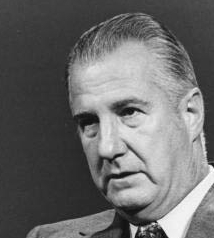
1973 – Less than a year before Richard M. Nixon’s resignation as president of the United States, Spiro Agnew became the first U.S. vice president to resign in disgrace.
The same day, he pleaded no contest to a charge of federal income tax evasion in exchange for the dropping of charges of political corruption. He was subsequently fined $10,000, sentenced to three years of probation, and disbarred by the Maryland court of appeals.
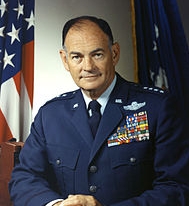
1974 – General George Brown, Chairman of The Joint Chiefs Of Staff, replying to questions after addressing a group at Duke University Law School in Durham, N.C. on the possibility of American military intervention in the event of a second Arab oil embargo, said that Jews exerted too much influence in Congress.
The Jewish influence, he said, was, “so strong you wouldn’t believe now. We have the Israelis coming to us for equipment. We say we can’t possibly get the Congress to support that. They say, ‘Don’t worry about the Congress. We will take care of the Congress.’ Now this is somebody from another country, but they can do it. They own, you know, the banks in this country, the newspapers. Just look at where the Jewish money is. If there is another oil embargo and people in this country are not only inconvenienced and uncomfortable but suffer, they will get tough minded enough to set down the Jewish influence in this country and break the lobby.”
Incredibly, Brown was not fired by President Gerald Ford, nor was he asked to resign. In fact, he went on to serve under the new president, Jimmy Carter.
1975 – Sixteen months after divorcing Richard Burton (her husband of ten years), Elizabeth Taylor married him again. Eleven months later, they divorced again.

1985 – Orson Welles, actor, director, writer and producer (Citizen Kane, The War Of The Worlds, The Third Man, Macbeth) died of a heart attack. He was 70.
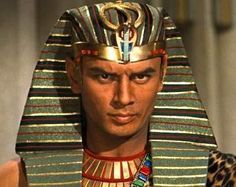
1985 – Actor Yul Brynner (Anastasia, The Ten Commandments, The Magnificent Seven, The King And I, for which he won an Academy Award for Best Actor) died of lung cancer at the age of 65.
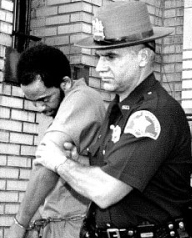
1991 – Former U.S. postal worker Joseph Harris shot two former co-workers to death at the post office in Ridgewood, NJ. The night before, Harris had killed his former supervisor, Carol Ott, with a three-foot samurai sword, and shot her fiance, Cornelius Kasten, in their Wayne, NJ home. After a four-hour standoff with police at the post office, Harris was arrested. His violent outburst was one of several high-profile attacks by postal workers that resulted in the addition of the phrase “going postal” to the American lexicon.
But what the police didn’t know at the time was that Harris had committed another murder in 1988. After learning he had lost $10,000 by investing it with broker Roy Edwards, he killed Edwards in his Montville, NJ home after sexually assaulting Edwards’ wife and two daughters. Since hundreds of investors had lost money while dealing with Edwards, police never even considered Harris a suspect in his death until after the mass slaying on October 10.
Arguing that he was insane, Harris’ lawyers said he had told psychiatrists that he was driven by the “ninja spirit” to commit the crimes. In 1992, Harris was convicted of the Montville, Wayne and Ridgewood attacks and was sent to death row. But in September 1996, two days before a New Jersey State Supreme Court battle to overturn its death-penalty law was to start, he died of natural causes.

1997 – Jody Williams, key organizer of the International Campaign to Ban Landmines, won the Nobel Peace Prize. And what did she say was her secret weapon for organizing 1,000 different human rights and arms control groups on six continents? “E-mail.”
2002 – The Iraq Resolution (formally the Authorization for Use of Military Force Against Iraq Resolution of 2002) was approved by the U.S. House of Representatives (by a vote of 296-133) and sent to the U.S. Senate.

2004 – Actor Christopher Reeve, who became famous for his starring role in four Superman films, died from heart failure at the age of 52 at a hospital near his home in Westchester County, New York. Reeve, who was paralyzed in a 1995 horse-riding accident, was a leading advocate for spinal cord research.
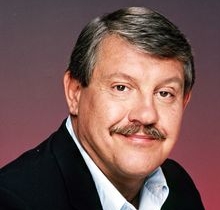
2012 – Alex Karras, defensive tackle with the Detroit Lions, broadcaster on Monday Night Football, and actor (Blazing Saddles, Webster) died of kidney failure at the age of 77.
Compiled by Ray Lemire ©2016 RayLemire.com. All Rights Reserved.